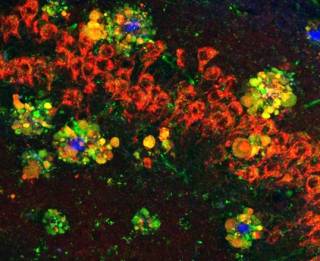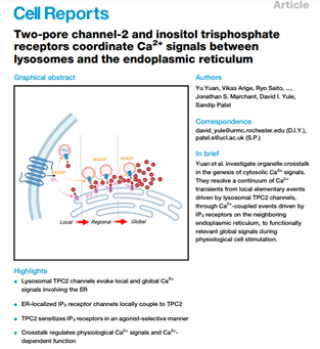CDB labs have a raft of papers published early 2024
7 March 2024
Labs headed by Patricia Salinas, Claudio Stern, Jason Rihel, Sandip Patel, Richard Poole and Susan Evans have had paper(s) published so far this year (2024). We report here on the Salinas, Stern, Rihel and Patel news, with Poole's and Evans' each appearing in separate articles.


Claudio Stern’s lab is delighted that Hyung Chul Lee et al’s paper on the Regulation of long-range BMP gradients and embryonic polarity by propagation of local calcium-firing activity has – after a long wait – been published in Nature Communications (https://www.nature.com/articles/s41467-024-45772-4). Hyung Chl Lee is now based at the Chonnam National University in Korea. Many amniote vertebrate species, including humans, can form identical twins from a single embryo, but this rarely occurs. It has been suggested that the primitive-streak-forming embryonic region emits signals that inhibit streak formation elsewhere, but how the signals involved, how they are transmitted and how they act has not before been elucidated. This research provides evidence for similar mechanisms in two different human embryo models and in Drosophila, suggesting an ancient evolutionary origin.

Additionally, this work is the first to show definitively that zebrafish naturally produce amyloid-beta, something that previous work had assumed but not formally demonstrated. The photo is of first-named author, Güliz Özcan. The work was funded by the Wellcome Trust and a Fellowship to Güliz from the Alzheimer’s Research UK charity.

Sandip Patel’s lab sends congratulations to Yu (‘Cara’) Yuan, a post-doc in the lab, on her recent work published in Cell Reports. The work was a team effort with other members of the lab, namely: Ryo Saito (now back in Japan), Qianru (‘Maggie’) Mu and Steve Bolsover (now retired), and international partners principally David Yule’s lab at the University of Rochester, USA. Their data provide a conceptual framework to understand how Ca2+ release from physically separated stores, such as lysosomes and the endoplasmic reticulum (ER) is coordinated. Full paper at: https://www.cell.com/cell-reports/fulltext/S2211-1247(23)01639-X
 Close
Close

